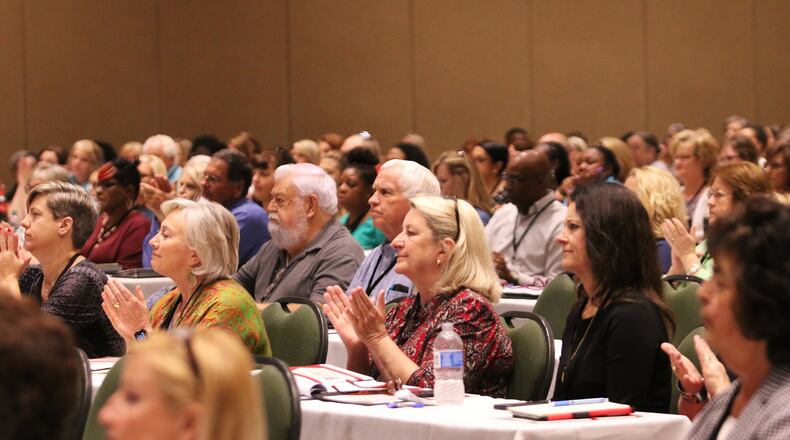“Wow.”
“That’s shocking.”
“If the county tax collector were to use county resources to collect taxes for a town and the town compensated the collector personally, I think that collector would be at risk of criminal prosecution for theft/misuse of county property.”
These were some of the reactions from tax professionals from Tennessee, Florida and North Carolina when they learned that Georgia’s county tax commissioners are legally allowed to pocket fees for collecting city taxes in their jurisdictions.
» RELATED: At $491K, Fulton tax man Arthur Ferdinand makes more than the president
» MORE: ‘Just improper’: former state rep calls for end to Georgia’s fee system
The Atlanta Journal-Constitution and the Georgia News Lab reported in June that at least 48 Georgia tax commissioners charge fees to cities for which they collect property taxes and keep those fees as supplements to their county salaries. The extra income from fees ranges from hundreds of dollars in smaller counties to hundreds of thousands of dollars in larger ones such as Fulton and DeKalb.
The practice isn’t allowed in any of Georgia’s neighboring states.
Like Georgia, Alabama allowed revenue officials to earn their income for charging fees for collecting taxes, but the state amended its laws nearly three decades ago in 1982, transitioning tax collectors from fee-based compensation to a salary. Fees charged to cities for the collection of their property taxes are deposited into a county’s general fund. Personally keeping fees is barred.
“Alabama is in front of us,” said Georgia state Rep. Scott Holcomb, D-Atlanta. “That doesn’t happen too often.”
Tax commissioners in Georgia have been permitted to keep fees as compensation since 1945, but it wasn’t until 1976 that a state-mandated salary based on population was implemented to bring uniformity to tax commissioners’ pay.
But uniformity wasn't achieved. The AJC/Georgia News Lab's investigation found the fees and the way they are calculated vary widely. Some fees are based on a percentage of a city's tax digest, others as dollar amounts per tax parcel. Contracts between tax collectors and cities also vary, and in several jurisdictions the taxes are collected without a written agreement, the investigation found.
Florida has a uniform property tax collection practice for its 67 counties, according to Tim Qualls, lawyer with the firm Young Qualls, PA, which represents the Florida Tax Collectors Association.
“It would be illegal for (tax commissioners) to take any commissions over and above what is required to fund their budgets,” Qualls said. “There’s no way a tax collector can cut a deal and say ‘Hey, I’ll collect your taxes for you for 2 percent on top of my salary.’ That just wouldn’t fly in Florida.”
As officers of the state, Florida tax collectors earn a formula-based commission for collecting taxes in their jurisdictions to fund their operations. Any extra commissions left over are turned over to the county and school boards at the end of the year, Qualls said.
“It’s very clear to the public what each tax collector makes, and there is no mechanism for a tax collector to sweeten that pot,” Qualls said.
State-mandated salaries are common among Georgia’s neighboring states, including Florida, South Carolina and Tennessee.
“We don’t personally benefit from (fees),” said Karen Paris, past president of the Tennessee Association of Property Tax Professionals and current tax collector for Williamson County. “There is no incentive above the budgeted salary for the elected official.”
Christopher McLaughlin, a government professor at the University of North Carolina Chapel Hill and the expert who told the AJC that pocketing fees could be criminal in North Carolina, said that public office shouldn’t be a licence for personal enrichment.
After some modest reforms in 2007, some legislators are once again calling for Georgia to re-examine the fee system, and expect proposals could come forward in the 2020 session.
“If you are an outlier, that should be cause for further scrutiny,” Holcomb said.
About the Author
Keep Reading
The Latest
Featured


